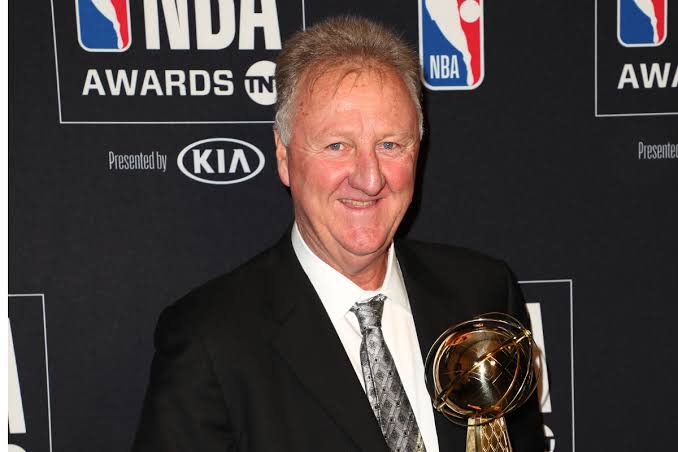Larry Bird: From Legendary Player to Financial Success
Larry Bird, born December 7, 1956, in West Baden Springs, Indiana, is one of basketball’s most iconic figures. His journey from a small-town basketball enthusiast to an NBA legend is a testament to his extraordinary skill, competitive spirit, and strategic intelligence on the court. Bird’s influence transcends his playing days, leaving a lasting legacy in both basketball history and financial success.
Early Life and Entry into Basketball
Growing up in a small Indiana town, Larry Bird discovered basketball as a means to escape the mundanity of rural life. His prodigious talent emerged early,
Bird’s college career peaked in 1979 when he led Indiana State to the NCAA Championship game. Although his team lost to Magic Johnson’s Michigan State squad, Bird’s remarkable performance caught the eye of NBA scouts, setting the stage for his entry into professional basketball.
NBA Career and Achievements
Drafted by the Boston Celtics as the 6th overall pick in 1979, Bird’s impact was immediate. His rookie season saw the Celtics improve their record by 32 games, and Bird was named NBA Rookie of the Year. Over his 13-year career, Bird became a 12-time NBA All-Star and won three consecutive NBA Most Valuable Player (MVP) awards from 1984 to 1986—a rare and significant achievement.
Bird’s leadership helped the Celtics secure three NBA championships in 1981, 1984, and 1986. Known for his clutch performances, his rivalry with Magic Johnson, which began in college and continued in the NBA, became one of the most celebrated in sports history. This rivalry played a pivotal role in boosting the NBA’s popularity during the 1980s.
Transition to Coaching and Management
Upon retiring in 1992 due to back issues, Bird didn’t stray far from the game. He took on the role of special assistant for the Boston Celtics and in 1997, became the head coach of the Indiana Pacers. Despite having no previous coaching experience, Bird led the Pacers to a remarkable 58-24 record in his first season and was named NBA Coach of the Year.
Bird’s coaching tenure included a trip to the NBA Finals in 2000, where the Pacers were defeated by the Los Angeles Lakers. After stepping down from coaching, Bird transitioned to an executive role, serving as President of Basketball Operations for the Pacers from 2003. His leadership and strategic insights earned him the NBA Executive of the Year award in 2012, making him the only individual in NBA history to be honored as MVP, Coach of the Year, and Executive of the Year.
Larry Bird’s Financial Success
Larry Bird’s career achievements translated into substantial financial success. As of 2023, his net worth was estimated at approximately $75 million (£60 million), growing to around $80 million (£64 million) by 2024. Bird’s wealth stems from various sources, including his NBA salaries, coaching and executive roles, endorsement deals, and strategic investments.
During his playing career, Bird’s peak salary was £4.5 million ($7 million) in the 1991-1992 season. He also earned from endorsements, notably with Converse, which featured his signature basketball shoes. Post-retirement, Bird continued to accumulate wealth through his coaching and executive roles with the Pacers and through savvy investments in real estate and other ventures.
Legacy and Continued Influence
Larry Bird’s influence on basketball remains profound. His name often appears on Forbes’ lists of richest athletes, underscoring his financial acumen and continued relevance in the sports world. Bird’s approach to life and business mirrors the principles that made him a great player—dedication, intelligence, and competitive drive.
Bird’s legacy is not only defined by his on-court achievements but also by his ability to adapt and excel in various roles within the basketball industry. His story continues to inspire and his impact on the game endures, solidifying his place as one of basketball’s greatest icons.
Leave a Reply